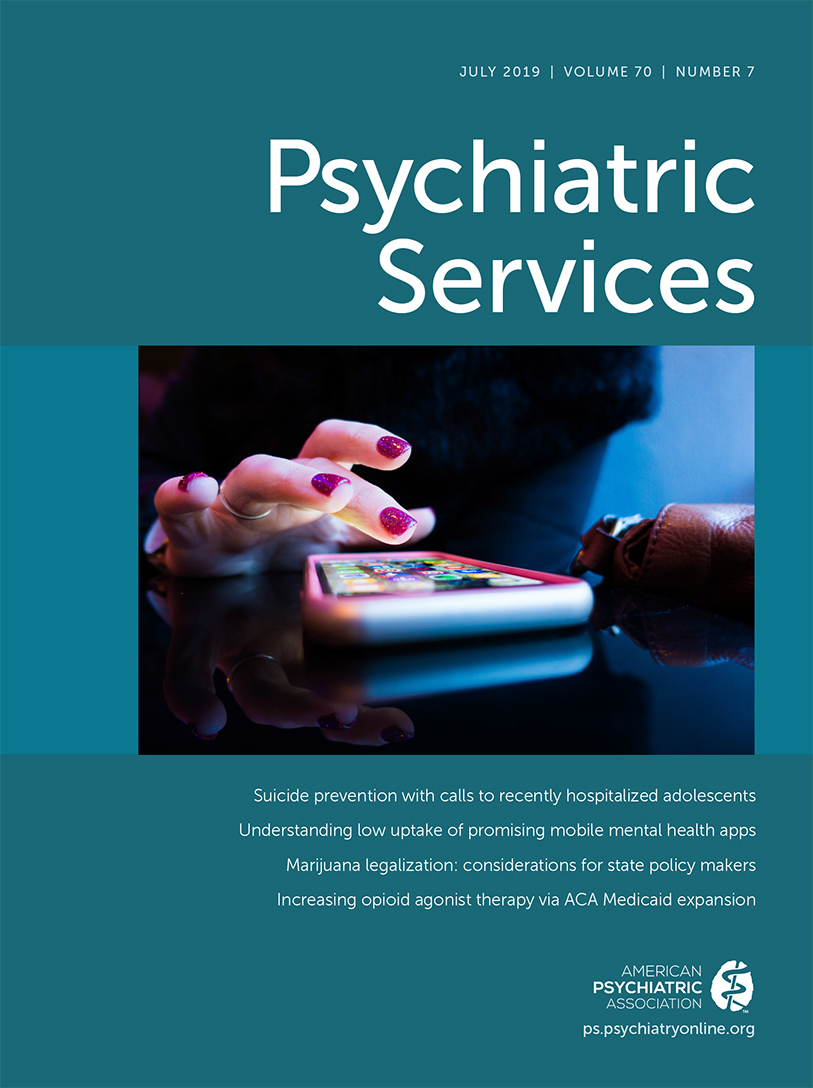The Affordable Care Act and Opioid Agonist Therapy for Opioid Use Disorder
Abstract
Objective:
The study examined whether the use of opioid agonist therapy (OAT) for treatment of opioid use disorder in specialty substance use treatment settings increased following Medicaid expansion.
Methods:
Administrative data on 943,430 admissions from the Treatment Episodes Data Set–Admissions (2010–2016) were used to examine the association between Medicaid expansion and the use of OAT and to assess whether this association was mediated by increased proportion of admissions with Medicaid in expansion states.
Results:
From 2010–2013 to 2014–2016, OAT use among patients with opioid use disorder increased in both expansion (39.1% and 50.2%, respectively) and nonexpansion (39.9% and 40.5%, respectively) states. The effect of Medicaid expansion on OAT use was mainly mediated through a larger proportion of admissions with Medicaid in expansion states.
Conclusions:
As the nation grapples with the opioid epidemic, expanding Medicaid coverage has the potential to promote greater access to evidence-based treatment.



